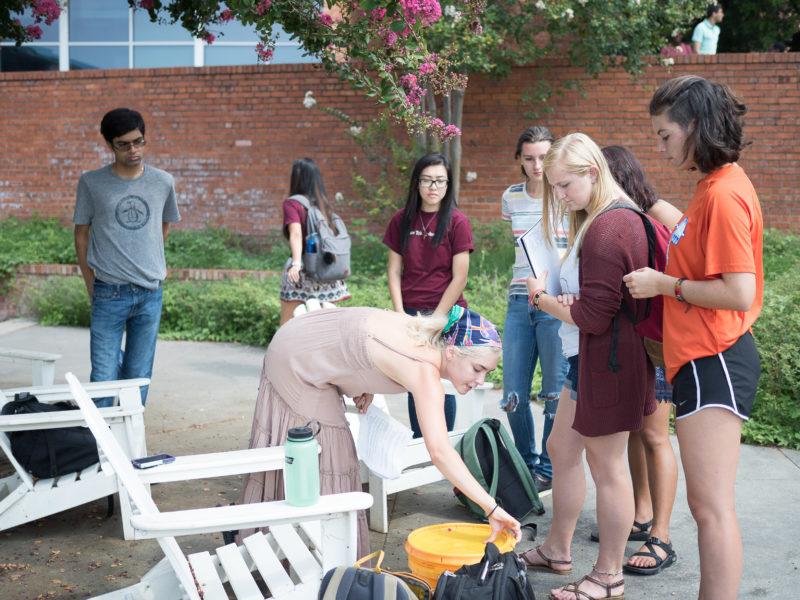Trinity has continued the student-led gardening class. The course, Practical Internship: Gardening in South Texas, is taught by sophomore Olivia Roybal, a biology major with extensive experience in local flora, and by junior Nikhil Patel. It currently counts as a one credit hour upper division biology elective.
The one-credit class focuses less on theory and more on learning the practical aspects of gardening.
“Most of what we are teaching is fairly basic,” said Nikhil Patel, one of the student teachers. “It’s meant to be an introduction with the primary focus on application “” thus lots of doing.”
The class is also structured to highlight the unique gardening opportunities that are presented by San Antonio’s climate.
“The class is designed to be a highly experiential course that will transfer basic knowledge about planning and maintaining a garden in South Texas,” said Olivia Roybal, who teaches the course with Patel.
Though the class only meets once a week on Fridays, students are excited and already learning quite a bit about local gardening.
“The class has been informative, professional and efficient so far,” said Lavanya Hospeti, a junior sociology major taking the course. “Olivia and her co-teacher Nikhil have already taught us new concepts.”
Both Patel and Roybal think that there are specific benefits to be had from learning from peers.
“When I was a student taking the class last year, it provided a really interesting and uniquely casual learning environment,” Roybal said, “The opportunity to learn from your peers is uncommon, but very worthwhile.”
Patel said he believes that students who choose to be student teachers, and therefore voluntarily take on enormous responsibility, do so primarily out of love for the course material. He believes this love is naturally conducive to making great teachers.
“Students know the best teachers are the ones who love what they are teaching,” Patel said.
Grading for the class is based on students’ attendance taken by the student teachers.
“The class is purely based on participation,” Roybal said about the policy, “and attendance is submitted to the faculty sponsor at the end of the semester.”
Roybal believes that the way the class is structured will draw in interested students. This allows for accountablity without putting students’ grades in the hands of other students.
However, Roybal thinks that students who enroll in the class will show up regardless of the attendance policy.
“I think students that register for the course know what the pace of the class will be like,” Roybal said, “and they understand that it’s a very informal and practical class.”
Both of the student instructors took the class in a previous semester and had expressed notable aptitude which made them natural choices to lead the course.
“I was involved with the garden last year and had worked closely with the previous teachers, Hayley Sayrs and Nathan King, in the past,” Roybal said. “I indicated an interest and had some experience, so I was given the position.”
Even apart from the specific necessities of teaching the course, the passion of the student teachers routinely shines through.
Roybal hopes to continue working with the gardening class even if she doesn’t teach again.
“I would love to continue this position for as long as possible,” Roybal said, “and plan on being involved with the Trinity Community Garden my entire time at Trinity, whether or not I’m teaching.”
Students who wish to take the course but were unable to sign up this semester will have the opportunity to try to enroll in the spring of 2017.







